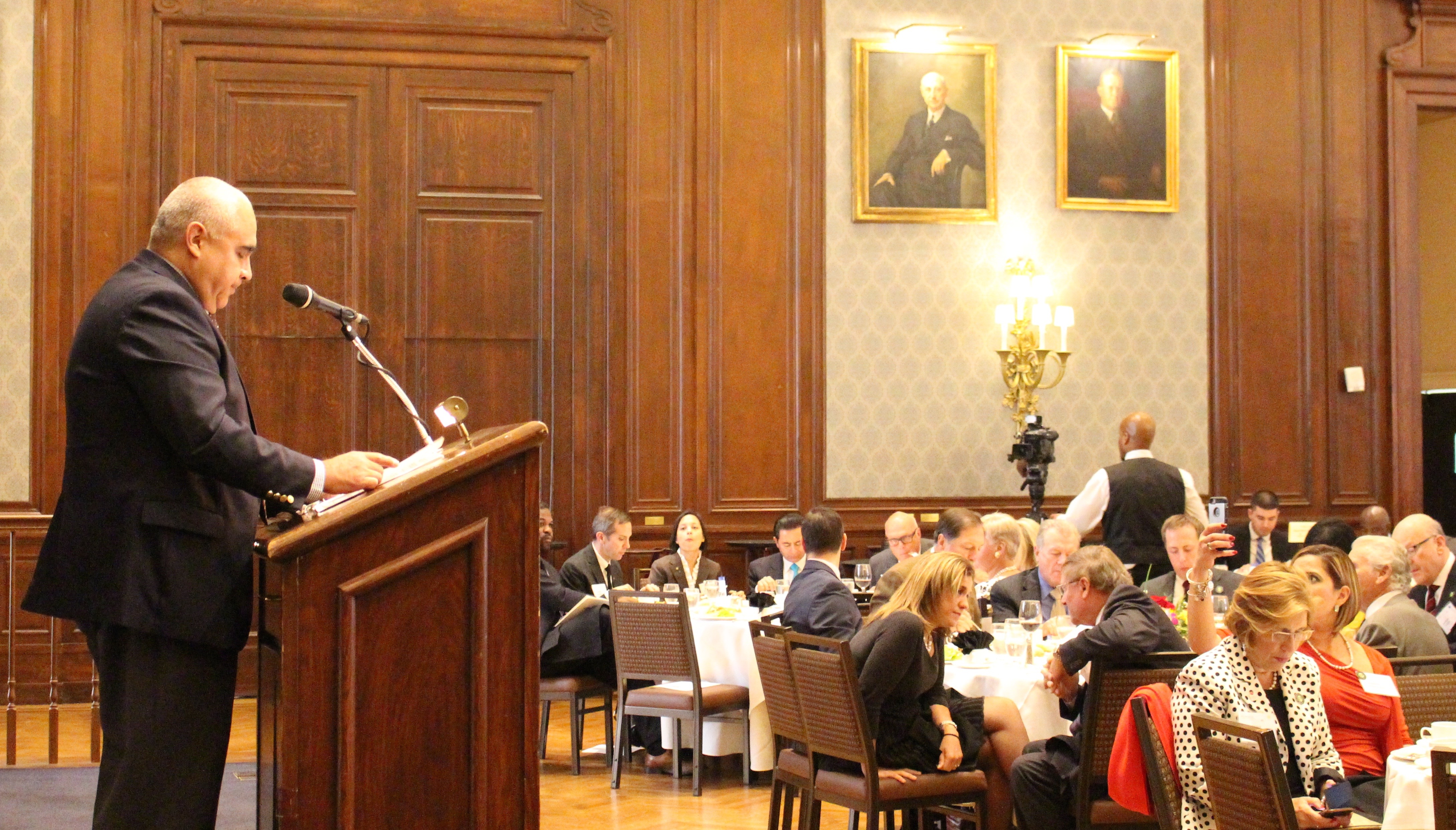
State Department's Gonzalo Gallegos talks U.S.-Cuba relations
Gonzalo Gallegos, deputy assistant secretary at the Department of State’s Bureau of Western Hemisphere Affairs, talked about the the reestablishment of U.S…
Gonzalo Gallegos, deputy assistant secretary at the Department of State’s Bureau of Western Hemisphere Affairs, talked about the the reestablishment of U.S.-Cuba relations during the 75th anniversary luncheon of the Pan American Association of Philadelphia.
“We are working to normalize our relationships with the Cuban government while making changes to our policies that will empower the Cuban people,” Gallegos said. “We believe a policy of engagement will produce results in economic and human rights issues, where a well intended policy of isolation that lasted more than 50 years did not.”
On Dec. 17, 2014, President Barack Obama announced the beginning of a process of normalizing relations between Cuba and the U.S. According to Gallegos, the announcement changed the course of U.S. relationship not only with Cuba but with Latin America.
He added that at previous Summits of the Americas, the United States had been the “lone country outside looking in,” but in the latest edition, held in Panama last April, “we were part of the broader group.”
“By changing our policy with Cuba, we have opened that door that allows us to work more directly with them (Latin America) and to have stronger arguments against the four or five countries where we still have problems in the region,” Gallegos said.
On Aug.14, 2015, Secretary of State John Kerry traveled to Havana for the reopening ceremony of the U.S. embassy — which had been closed for 54 years — marking another step in the process to normalize relations between the two countries.
“This process requires continuous engagement and dialogue between our two governments based on mutual respect, and we don’t expect change to happen overnight,” Gallegos said.
On September 11, the US-Cuba Steering Committee, created to aid the normalization of relations, met for the first time in Havana, and it is expected to meet again in November.
“The critical focus of our increased engagement will continue to be improving the Cuban government’s respect for human rights and advocating for democratic reforms,” Gallegos said.
In regards to immigration, he added that the administration has no plans to alter the current policy, including the 1966 Cuban Adjustment Act, and the “wet feet, dry feet policy” as a result of a revision of the act in 1995. In accordance to the policy, those who flee Cuba and make it to U.S. shore can remain in the United States, and later apply for a green card and eventually citizenship, while those who are caught on the waters between the two nations are sent home.
Despite the efforts to normalize relations, the embargo is still in place and only Congress can act to end it. Meanwhile, President Obama has taken steps within his authority to ease trade and travel restrictions. Though traveling to Cuba as a tourist is not yet permitted, the changes announced this year make authorized travel easier; increase the amount of remittances permitted; allow the U.S. private sector to engage directly with the Cuban people; authorize commercial sales and exports of certain goods and services for use by Cuban entrepreneurs; and authorize more engagement by U.S. telecommunication companies in the island.
On October 6 and 7, Secretary of Commerce Penny Pritzker met with Cuban counterparts in Havana to talk about business opportunities.
“In order to see continued progress in the business and commercial space, Cuba has to be willing to make a number of changes,” Gallegos said, “and allow the Cuban people to benefit from recent changes to U.S. regulations.”
According to Gallegos, much of this change is based on a desire to support the growth of Cuba’s nascent private sector, including small business owners and private cooperatives. Some U.S. companies have even been authorized to set up shops in Cuba and hire Cuban staff.
“The policy is really directed to how do we get Americans into Cuba but also how do we bring Cubans out of Cuba,” Gallegos concluded.










LEAVE A COMMENT:
Join the discussion! Leave a comment.